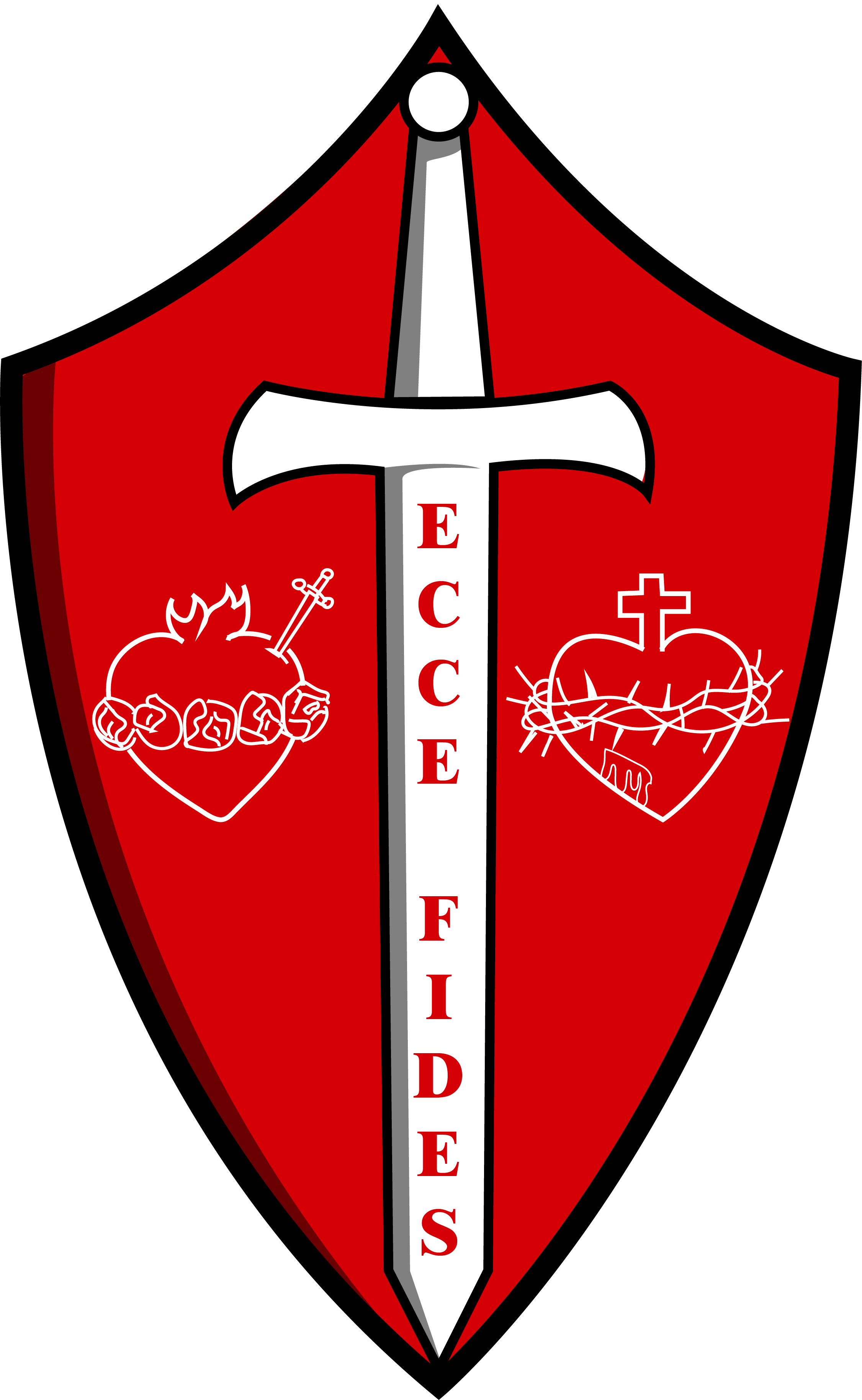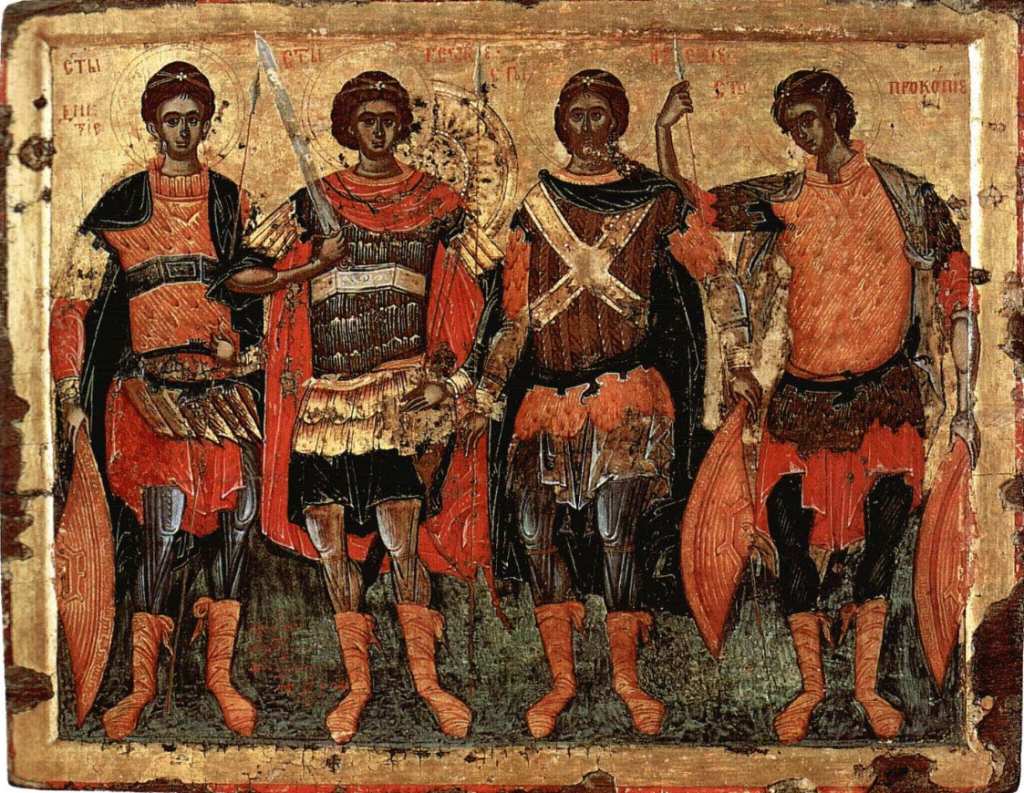We were all sitting in the parish hall, stringing up Miraculous Medals to pieces of cord to make them into necklaces. The Priest would bless the piles of St Benedict medals in a few moments. In a few days, it would be Epiphany. A great mission was planned for that day; we would all be out in the streets distributing these to the good people of New York and hopefully witnessing to them in the process.
The room was abuzz with talk of spiritual warfare. It’s a popular topic of discussion among the faithful. Still, its real-life application tends to vary from casting out legions of unclean spirits from a demoniac to simply getting out of bed in the morning. In hopes of some illumination, I struck up a conversation with the gentleman next to me, a member of the United States Army.
Mr. Nicholas Louis Liverpool is so kind as to allow me to share the contents of our conversation, which you can read below.
I hear that you were, um, a serviceman. Are you an active serviceman? You’re a veteran. And what branch did you serve in?
I originally joined the Army in 2017. I have served as an active duty serviceman for three years, and I was stationed overseas for nine months. Currently, I’m in the active reserves.
I remember you had mentioned that you converted while you were active duty overseas. Could you tell me the story of how you came to the Faith?
I grew up Protestant—Seventh Day Adventist. Eventually, it had come to the point where I felt that there were just too many issues popping up for me. It seemed that the Seventh Day Adventists were conflicting with what I would just plainly read in Scripture. I fell away from that Faith. At the time, I would have described myself as an atheist. Really, I was just seeking. I was always interested in different religions. I was looking, I was wandering. “Maybe,” I thought, “I’ll find something.” But since I grew up in Protestantism, I didn’t really consider Christianity in my period of seeking. I thought I knew everything that there was to know about it.
While I was deployed in Syria, I started reading a bunch of different books. A great deal of those books were on political philosophy. I came across one and it talked about Christian history, about Christian society. It caused me to have an appreciation of Christianity that I hadn’t had in a long time. So I thought, you know what? While I look at other religions, maybe I should start to look at Christianity again.
I’m a huge history fan. To me, Protestantism doesn’t really make much sense to me on a historical level, so dismissed it. I also read about Catholicism and Orthodoxy. When I came back from my deployment, I thought about going to visit a church. But it had been so long—I was nervous. Ironically, the thing that led me to Catholicism once and for all was a Protestant Uber driver. The driver had invited me to his church, so I decided that I would go to his church that Sunday, but the following Sunday, I would attend the Mass. And so, I did.
I can’t say that I believed at the time of going to that first Mass, but, at one point, I had just been hit, and I started to believe. I got on my knees and began to pray. I prayed, “God. I don’t know what you want from me. I don’t know where I should go. But I am going to keep going to this church. Show me a sign. If you want me to do something else—show me a sign.”
I kept going to that church. The second or third Sunday I was there was the Nativity of the Blessed Virgin Mary. After Mass, I went down to the parish hall and I approached the pastor. I said, ‘Father, I’d like to start catechesis so I may become a Catholic.” There were no classes at the time, so the Priest taught me one-on-one. Since then, I have gone full force.
I went through my catechesis, but being able to receive the sacraments was difficult because I was still serving active duty in the Army. I finally finished the catechesis I got during Easter 2020, during the whole COVID-lockdown. I was getting out of the Army the same year, and I was also accepted into college. I enrolled at Holy Cross College. It was all a huge change for me.
Since then, I never looked back. I have continued to study the Faith. I always try to increase my prayer life, and I always try to increase my knowledge, but I have never again doubted God after that. For me, Catholicism just makes the most sense on a historical and theological level.
God has been with me. No matter how bad things have gotten, I’ve never felt like God has abandoned me or that God has failed me in anything that happens to me. I keep going because this is my life—and I plan on dying a Catholic, no matter what happens.
Do you have any thoughts on spiritual warfare? What does it mean to you? Is there any connection to physical warfare, like you experienced in the Middle East?
There is a true, real, spiritual battle going on. I definitely think you can learn from the Army as you fight in it, particularly the awareness of being in a combat zone.
First of all, the number one duty is to always be vigilant. The second that you fail, not only do you fail yourself, you fail your entire unit. That is why it is so important to be vigilant. If you aren’t vigilant, not only can the enemy get onto you, but he can get to others through you. Your family, your friends, your parish, the whole Church.
Secondly, don’t rely on only yourself. The Army is a team effort, you know. If you have any doubts or worries, go to your Priest. If you can’t go to him, go to the people in your parish—even those you may not be very close with. You guys should all be on the same side. You should always be there, even for your worst enemy.
You know, when I was in the Army, there were some people that I absolutely hated. I couldn’t stand them, but I would always be there for them if they asked me for help. If they ever asked me to go somewhere, there I went—for them. I will always help them because all we have is each other, right?
Would you consider yourself a soldier for Christ?
No, I am a slave for Christ. Whether that involves me being a soldier, whether that involves me being a janitor, or whether that involves me being whatever. Anything Christ wants from me, I will do it.



2 Responses
Why didn’t you include him talking about St Bridget an important aspect of my friend Nicholas’s Catholicism, I know he would include her.
Hey John,
I appreciate that you read the article! Nicholas and I definitely did discuss St Bridget- he taught me a lot about her! However, for the purposes of the article, I wanted to keep it streamlined about spiritual warfare / service in the military. Regrettably, I couldn’t find a good way to work that in.
I hope soon to maybe have a follow up interview with Nicholas specifically about St Bridget! I think that would be a real treat. Apologies for any disappointment.